At Banc of California Stadium, the supporters chant in three languages. The first two, English and Spanish, bounce through nearly every stadium in the league. In Los Angeles, fans also sing in Korean.
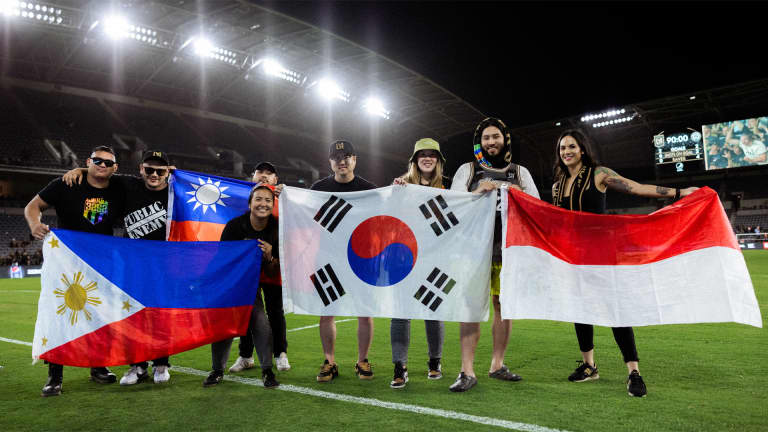
Those chants began with the Tigers Supporters Group, an LAFC supporters' group based out of Los Angeles’s Koreatown neighborhood, one of the most diverse in the city. Which makes it one of the most diverse in the world. Over 60% of its residents are foreign-born. Over 20% of its 120,000 residents have Korean ancestry.
Those chants have continued with an LAFC community that has embraced TSG as they’ve grown from a small group of 15 or so tailgating before games in the Lot 6 parking lot outside Banc of California Stadium into a group of more than 100 people working constantly to represent their city, represent their team, represent their neighborhood, and represent each other.
“I've learned a ton of Spanish songs as well. It was phonetic at first but now I can understand the heart and soul behind it when I sing,” TSG member Josh Lee said.
“For most countries, it's one dominant language being sung from the stands. For us here in LA, we get a chance to really show the world that this corner of the world is not like any other. We have Korean chants coming through and hearing like the Mexican and El Salvadorian homies and Guatemalan homies, singing Korean too with them going the opposite way of learning phonetically from us is such a beautiful thing. To hear a native tongue being sung in the stadium has been really like a watershed moment. It's a beautiful thing to witness.”
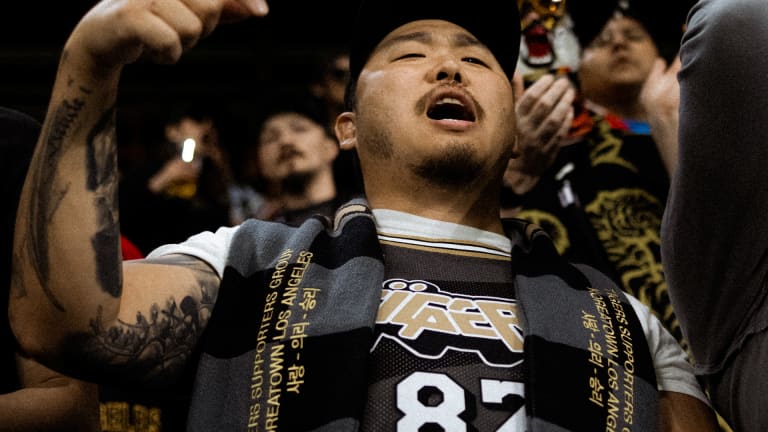
"People feel at home"
TSG began in the fall of 2017, a few months before LAFC’s inaugural season. Koreatown wasn’t new to soccer, though. The Korean national team regularly drew an impressive crowd for World Cup matches. When future TSG members went from considering the creation of a K-Town-based SG to the solidifying step of choosing a name, Tigers, the nickname of the national team, made sense.
Once they had the name, they needed the community. There were some first day of school-level nerves in their first interactions with the rest of LAFC’s Supporters’ Union, the 3252. They welcomed TSG from the beginning, though, even as the group stayed small through LAFC’s first season. Fortunately, as LAFC’s reputation grew on the field and in the stands, so did TSG’s.
“It was very 'Field of Dreams,'” TSG President Sam Ko said.
“We weren't really recruiting. We were just trying to figure out who we were. It didn't grow quickly. But we just kept focusing on what our identity was and how we could make ourselves more a part of the community. Just through that, through rubbing shoulders with other people that were just looking for that same type of like community aspect we grew. At some point, we had one event and the number of people nearly tripled at one event and we kind of just steadily kept growing from there.”
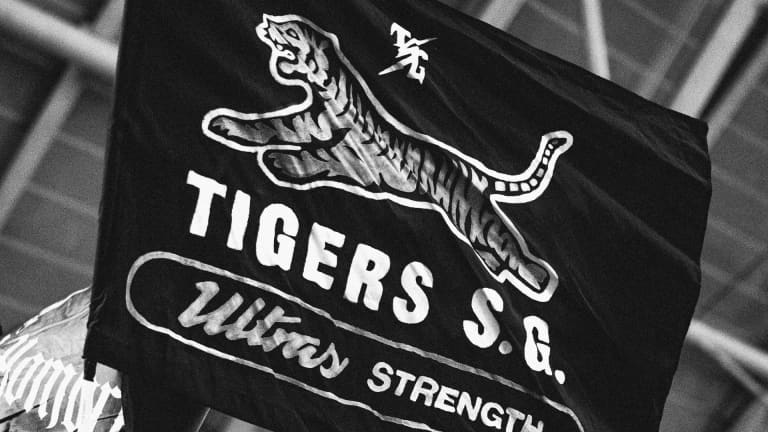
For people like TSG member and K-Town native Christian Ortiz, that steady growth is easy to understand. Initially, Ortiz avoided supporters’ groups. But a group representing the neighborhood he grew up in caught his interest. A group that made everyone feel like they belonged had him hooked.
“People feel at home. I mean, that's how I felt. I felt like it was a perfect place,” Ortiz said. “I can tell you that everyone is there for the right reasons. They're really passionate about what they're doing and everyone helps everyone out.
“Honestly, TSG is just a breath of fresh air. It’s all about, you know, contributing to the greater cause versus just being focused on what you can get out of it. And that's what I love most about our group that everyone just pitches in and is always looking out for each other.”
"Sense of community"
Over the last couple of years, looking out for each other has become less of a group-wide ethos and more of a necessary action for everyone involved. There’s the everything about the pandemic that will be personally familiar to all of us – the insecurity, the fear and the grief. But for some in TSG that insecurity, fear and grief created by a virus has been coupled with the same feelings created by a rising tide of cowards committing public acts of discrimination and outright violence towards people of the Asian American Pacific Islander community.
The nonprofit Stop AAPI Hate states that 6,603 reports of AAPI discrimination were made to their organization in 2020. That number increased by nearly 3,000 in March of 2021 alone. And while TSG, like Koreatown, isn’t exclusively comprised of members of the AAPI community, there is a sense that the group can be a resource to care for one another through the strain of just existing in 2021.
“This is something that we could potentially and I could potentially pass down to my kids if I ever have any. We can pass down how to build that sense of community and to be strong. Especially in these times where Asians are being attacked. Random, just terrible attacks,” TSG member Daniel Chung said.
“Sometimes it's hard for especially Koreans to open up or to be part of their community in a way that really benefits everyone. I know like my parents, they kind of put their head down and they just worked, worked, worked and just did what they could to support our family. And it was never like, okay, well what can we do to help our other Korean neighbors and do other stuff? I don't know if that's just a generational thing or if it was like a Korean thing. But it's super important that we do that now. All we have is community. All we have is each other and we need to support each other in whatever way possible, especially in these tough times.”
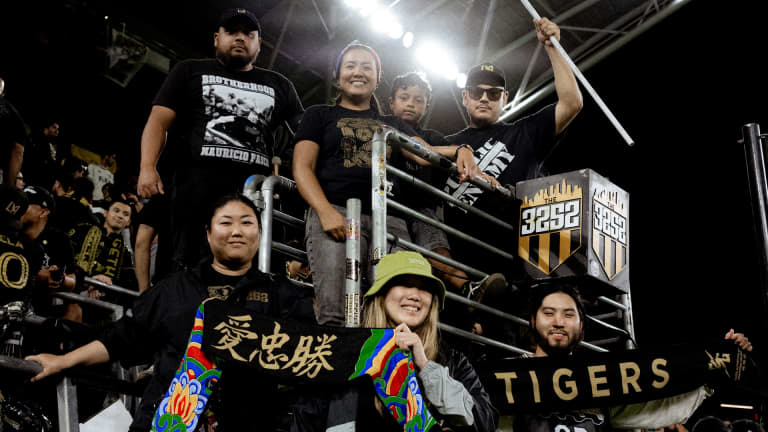
Throughout the pandemic, it seems that TSG has done just that. There are stories of members making meals and dropping food and drinks off at other TSG houses, stories of taking the brave step of switching from a barber of five years to a TSG member who needed the work, stories of starting a cycling club with another member, and simply stories in general of TSG acting as a community working for each other.
“It's been everything from a mental health checkup group to a support base,” TSG member Josh Lee said.
“I think that the kind of bonds we form through this club and through TSG, in particular, have allowed us to kind of just check-in, share memes, share scores around the world when football was back finally and just like really become kind of a sounding board for people to laugh together and to really check each other when we're going through some really emotional things. Having that as kind of an outlet to talk through some of the things we're going through is something very unique.”
"We're the K-Town supporters’ group"
“Unique” pairs well with a group representing Koreatown. There’s immense pride in not only the cultural diversity of the neighborhood but in those cultures’ abilities to exist distinctly in a community with over 40,000 people in each square mile. K-Town is not a melting pot. It’s a swiss army knife where each independent part has purpose in contributing to the whole.
That’s reflected in TSG. And for the people who have grown up in K-Town or adopted it, there is a joy and responsibility in representing the neighborhood.
“It's crazy how many different cultures and different people have moved into Koreatown. So for us as a group to represent the different faces of K-Town is very important. I mean, we have so many different cultures and races in our group,” Chung said.
“I grew up in Koreatown and just being able to have that part of our name, like 'we're the K-Town supporters’ group,’ is important. I don't know if I’m doing justice to how much this means but it's the center of Los Angeles in a way. It's just so important that, that we are here and we can share the love of Koreatown with other people.”
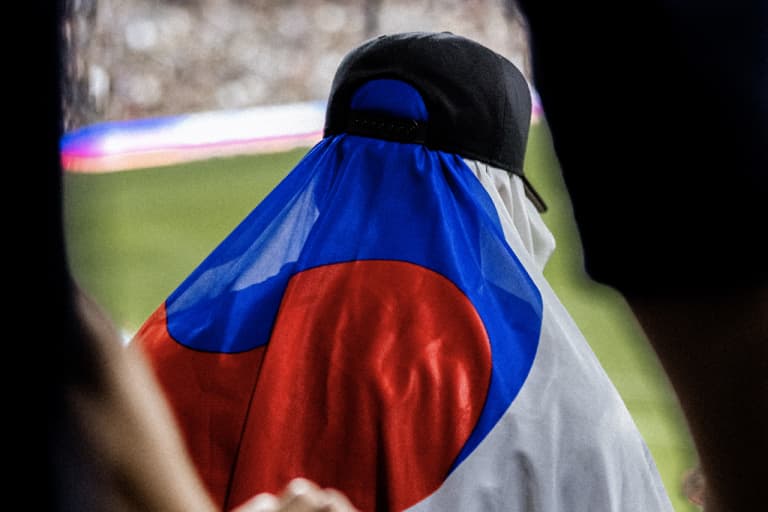
TSG not only represents K-Town, but it gives back to it. They’ve done work with groups like the Koreatown Youth Community Center, as well as with K-Town for All, an organization that works to improve the lives of the unhoused neighbors of the neighborhood.
“K-Town is a, is already a very special place. And then what I love the most is that I get to give back to the neighborhood I grew up in,” Ortiz said. “So not only do we get to get drunk with each other and party but we also get to do a lot of good things for the community and you don't even have to incentivize this type of thing. Whenever something comes up, everyone raises their hands.”
"This feels like family"
TSG takes care of their neighborhood. TSG takes care of each other. But TSG is, at its core, an LAFC supporters’ group. The rest is just a bonus. The group has been there since the club’s first match and their connection to a thriving supporter culture determined to reflect “the real LA” has only grown.
There’s probably not an actual answer to what “the real LA” actually is, but members of TSG and of The 3252 as a whole will tell you that you can see it at an LAFC game. If you ask an LAFC exec, they’ll tell you that feeling stems from a club-wide motto: Street by street. Block by block. One by one. Now all 150 or so blocks of Koreatown have been brought into the fold. And the folks at TSG see it as a chance to not only help write the next chapter of the city’s constantly evolving story but as a way to connect Los Angeles like never before.
“I always say this. This was dope because we got to meet our neighbors that were always there, but we just never had a reason to meet,” Ko said.
“Somehow football and LAFC became that middle ground for us and we're able to share cultures and, like literally the differences from one block to another. We’re having people tell us stuff like, ‘I always walked by a Korean restaurant, but I never felt like I could go in. I didn't feel like I belonged there.’ And now we've opened doors that we never really tried opening before.”
Through soccer, doors of all kinds are opening to everyone in the city, to everyone who cares about the club, to everyone wanting to join TSG, and to everyone already in it. The effects have rippled outward on a macro and micro level. Whether that’s connecting cultures and neighborhoods together or connecting a group of people together who can rely on each other when they need it most.
“I always like to ask, ‘Why do you guys want to join TSG?’” TSG’s Su Jin Lee said. “They say, ‘I just feel at home. This feels like family.’”












